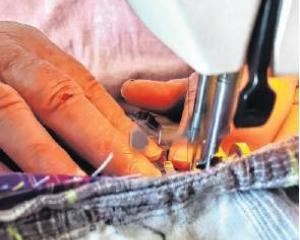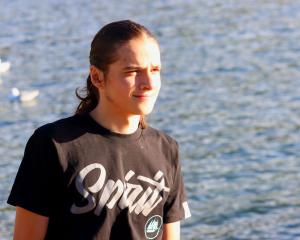
Two Syrian families in Dunedin are desperate to be reunited with their children as Lebanon steps up efforts to return refugees to Syria.
Lama Zaza and Abdallah Lababidi, both the eldest children of former refugee families living in Dunedin, are Syrian refugees living in Lebanon, fearful about the potential for imprisonment, torture or even death under Syrian president Bashar al-Assad’s rule.
Lama Zaza fled to Lebanon with her family during the Syrian war.
After marrying and having two children, her life took a dark turn when her husband subjected her to physical and mental abuse.

She finally escaped from the cruelty, but her children were taken to Saudi Arabia by her husband.
Divorced and alone in Lebanon, she longs to join her family in Dunedin.
Abdallah Lababidi’s journey to Lebanon in 2012 was driven by relentless bombings in his hometown.
When his parents and siblings moved to Dunedin as refugees about seven years ago, Mr Lababidi was married and hoping to start a family.
As economic conditions worsened and the Covid pandemic added extra pressure, he and his wife faced discrimination and economic hardship in Lebanon.
"So many Syrians have come to Lebanon as refugees that many Lebanese discriminate against us."
He and his wife found it harder and harder to survive as prices for basic items in Lebanon quadrupled.
When he lost his job, the desperate situation put extreme strain on their relationship and they separated.
Now divorced and alone, he hopes to come to Dunedin to be with his family.
Mr Lababidi said the Lebanese were rounding up Syrians and returning them to the regime of Bashar al-Assad.
"If I am returned, I will either be imprisoned and tortured and possibly killed, or forced to serve 10 years in Assad’s army, fighting for a cause I don’t believe in and killing innocent people," Mr Lababidi said.

But their efforts have been stymied by the number of applications in the system at Immigration New Zealand.
Trustee Kirsteen McLay said they had been trying to submit an application since before the Covid pandemic.
The families in principle could apply to sponsor their adult child for residence under the Refugee Family Support Category tier two.
But the ability to even submit a registration requesting to sponsor a family member is closed.
Immigration New Zealand is only accepting tier one sponsor registrations, which are for people who have no family in New Zealand.
The tier two category is closed, and with thousands of people already in the system for only 600 places each year, it will likely remain closed for more than 10 years.
Ms McLay accepted New Zealand could not just "open the floodgates and bring in tons of relatives".
But in specific cases, where just one relative was left stranded, and where their families in Dunedin were able to house and feed them, there needed to be an exception made, she said.
The collective has created a petition on change.org asking for the Minister of Immigration and the Minister of Foreign Affairs and their departments to consider these cases.
"There needs to be some possibility for them," Ms McLay said.
- To sign the petition, visit change.org
10-year delay expected for tier two registrations
Given the number of people already in the system it is likely to take more than 10 years before tier two registrations resume.
Immigration New Zealand manager refugee and migrant services Fiona Whiteridge said the refugee family support category permitted refugees and protected persons who gained residence to sponsor family members, their partners and dependent children for New Zealand residence.
It operates on a two-tier system. Each tier has had 600 annual slots since July 1, 2021 (formerly 300 places).
Tier one sponsors without immediate family in New Zealand are prioritised before the tier two category, which allows for people with other family members in New Zealand who were granted residence as refugees to sponsor a family member.
The application process involves two steps: registration and residence application.
After a registration is lodged, it is reviewed by a case officer, followed by an invitation for a residence visa application.
As of Monday, 6604 individuals are in progress, divided into registrations and applications.
With this number of people in the system it will likely take more than 10 years for tier two registrations to resume.
Ms Whiteridge said New Zealand accepted 1500 refugees each year under the refugee quota programme and an additional 600 places under the refugee family support category.
"New Zealand has a long and proud history of helping people whose lives are at risk and are forced to flee their country."
Registrations:
Tier one: 22 registrations for 65 people.
Tier two: 960 registrations for 4224 people.
(multiple people can be included in one registration)
Residence applications:
Tier one: 217 applications for 1493 people.
Tier two: 111 applications for 822 people.













